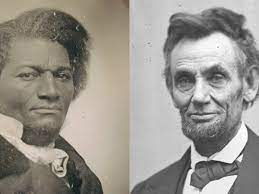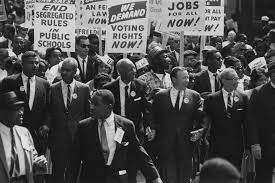Black History Month holds a vital place in our society, serving as a dedicated time to acknowledge and honor the achievements and struggles of the Black community. By exploring the rich history, culture, and contributions of African Americans, this annual celebration educates and inspires individuals of all backgrounds. In this article, we will delve into why Black History Month is celebrated and how it fosters equality, awareness, and empowerment.
Why Black History Month is Celebrated
Origins of Black History Month
Black History Month finds its roots in the visionary work of Carter G. Woodson, who established Negro History Week in 1926. This initiative aimed to ensure the recognition and appreciation of the significant role played by African Americans in shaping American history. Woodson, an esteemed historian and scholar, dedicated his life to studying and promoting African American history and culture.
 |
| Carter G. Woodson |
Negro History Week was strategically placed in February to coincide with the birthdays of prominent figures such as Abraham Lincoln and Frederick Douglass, who played significant roles in the abolition of slavery and the advancement of civil rights.
 |
| Abraham Lincoln and Frederick Douglass |
Recognizing the impact and importance of Woodson's efforts, Negro History Week gradually evolved into Black History Month. In 1976, President Gerald Ford officially recognized February as Black History Month, urging Americans to "seize the opportunity to honor the too-often neglected accomplishments of Black Americans in every area of endeavor throughout our history."
Honoring Black Leaders and Icons
Black History Month is an opportunity to pay tribute to the extraordinary leaders and icons who have left an indelible mark on society. By recognizing their achievements and contributions, we celebrate the resilience, creativity, and determination of African Americans who have overcome significant challenges and made groundbreaking advancements.
Throughout history, African Americans have emerged as trailblazers in various fields, including the arts, science, politics, sports, and social activism. Figures like Maya Angelou, Langston Hughes, Rosa Parks, Martin Luther King Jr., Barack Obama, Oprah Winfrey, Serena Williams, and many others have shattered barriers and achieved remarkable success, leaving an enduring legacy. Their accomplishments serve as an inspiration to generations, highlighting the limitless potential within the Black community.
Commemorating Black History
One of the primary purposes of Black History Month is to commemorate pivotal events that have shaped Black history. By shining a light on significant milestones, such as the Civil Rights Movement, the Emancipation Proclamation, and the Montgomery Bus Boycott, we foster a deeper understanding of the struggles faced and overcome.
 |
| Month-Long Celebration |
These historical events represent pivotal moments of courage, resilience, and the pursuit of justice. They serve as reminders of the progress made and the work that still lies ahead. By commemorating Black history, we ensure that these stories are not forgotten, and we honor the sacrifices and achievements of those who fought for equality and justice.
Fostering Equality and Social Justice
Addressing Systemic Racism and Inequality
Black History Month serves as a platform to address the persistent issues of systemic racism and inequality that persist in our society. It prompts us to confront the uncomfortable truths of our past and present, encouraging open dialogue, education, and advocacy for change.
Through an examination of historical injustices, such as slavery, segregation, and discrimination, we gain a deeper understanding of the systemic barriers that continue to affect the Black community. By acknowledging and confronting these issues head-on, we can work towards dismantling discriminatory systems and promoting equality for all.
Empowering the Black Community and Advocating for Change
The celebration of Black History Month encourages empowerment within the Black community. It provides an opportunity to amplify voices, promote self-worth, and advocate for change. By recognizing and honoring the achievements and resilience of African Americans, we foster a sense of pride and strengthen community bonds.
Black History Month inspires individuals to become active participants in creating a more inclusive society. It encourages individuals to educate themselves about the challenges faced by the Black community, engage in constructive conversations, and support initiatives that promote equality and social justice.
Celebratory Activities and Events
Cultural Festivals, Exhibitions, and Performances:
Black History Month is marked by vibrant cultural festivals, exhibitions, and performances. These events showcase the rich heritage, music, art, and traditions of African Americans. From soulful music performances to art exhibitions depicting the Black experience, these cultural celebrations create spaces for artistic expression, storytelling, and community engagement. They provide opportunities for people of all backgrounds to learn, appreciate, and celebrate the diverse contributions of the Black community.
Educational Programs and Lectures:
Educational programs and lectures play a significant role during Black History Month. They provide platforms for insightful discussions, lectures by prominent scholars, and workshops aimed at promoting a deeper understanding of Black history and its contemporary relevance. These educational initiatives aim to bridge the knowledge gap, challenge stereotypes, and foster a more comprehensive understanding of history.
Through engaging presentations, workshops, and panel discussions, individuals gain valuable insights into the achievements, struggles, and contributions of African Americans. Such educational programs encourage critical thinking, empathy, and an appreciation for the rich tapestry of Black history.
Educational Significance
Incorporating Black History into School Curricula:
Black History Month emphasizes the importance of incorporating Black history into school curricula throughout the year. By integrating diverse narratives and perspectives, we foster inclusivity, challenge stereotypes, and promote a more comprehensive understanding of history.
Incorporating Black history into educational curricula enables students to develop a holistic understanding of the American experience. It provides an opportunity to recognize and celebrate the achievements of African Americans, acknowledge the challenges they have faced, and understand the ongoing struggles for equality. By learning about the contributions of Black individuals, students develop a broader perspective, cultivating empathy, respect, and a commitment to justice.
Promoting Inclusivity and Diversity in Education:
By recognizing and celebrating the contributions of African Americans, Black History Month encourages educational institutions to create inclusive and diverse learning environments. It ensures that students from all backgrounds feel represented, valued, and empowered.
Promoting inclusivity and diversity in education involves providing resources, materials, and opportunities that reflect the experiences and achievements of diverse communities. By creating a curriculum that includes diverse voices, perspectives, and histories, we foster a sense of belonging, challenge biases, and cultivate an environment where every student can thrive.
Inspiring Future Generations
Empowering Young People through Knowledge and Awareness:
Black History Month inspires and empowers young people by equipping them with knowledge about the accomplishments and struggles of the Black community. This understanding fosters empathy, tolerance, and the motivation to create positive change.
By educating young individuals about the achievements and contributions of African Americans, we instill a sense of pride and self-worth. Knowledge of Black history helps break down barriers, dispel stereotypes, and fosters a sense of shared humanity. It empowers young people to challenge injustice, embrace diversity, and work towards a more inclusive future.
Encouraging Activism and Social Engagement:
By highlighting the achievements and resilience of African Americans, Black History Month encourages young individuals to engage in activism and social causes. It reinforces the notion that everyone has the power to make a difference and create a more inclusive society.
Black History Month serves as a call to action for young activists to address pressing social issues and advocate for justice. By engaging in community service, participating in peaceful protests, and supporting organizations focused on equality and social justice, young people contribute to the ongoing fight for a more equitable world.
Global Impact and Recognition
Influence and Celebration Beyond the United States:
While rooted in American history, Black History Month has garnered global recognition and celebration. Its influence has transcended borders, inspiring similar initiatives worldwide that honor the contributions and legacies of Black individuals.
Black History Month has served as a catalyst for change and awareness in countries around the globe. From Canada to the United Kingdom, from Brazil to South Africa, nations have embraced the significance of Black History Month, adapting it to their own contexts and histories. The celebration of Black history and culture has become a unifying force, fostering international dialogue, solidarity, and the exchange of ideas.
Building Bridges and Fostering International Solidarity:
Black History Month not only celebrates the achievements of African Americans but also serves as a bridge-builder, fostering international solidarity and understanding. It promotes cross-cultural understanding, encourages dialogue, and cultivates a global movement towards equality and justice.
The recognition and celebration of Black history across different countries provide an opportunity for individuals from diverse backgrounds to come together, learn from one another, and forge alliances. By acknowledging the shared struggles and triumphs of the Black community, we lay the foundation for building a more inclusive and interconnected world.
👉 Read more posts with the same topic
Conclusion
As we reflect on the ongoing importance of Black History Month, it becomes evident that this annual celebration holds immense significance. Through education, commemoration, and empowerment, it serves as a powerful tool for creating a more inclusive and equitable society. By acknowledging the achievements, struggles, and contributions of African Americans, we move closer to a future where every individual is valued and respected.
Black History Month prompts us to confront the injustices of the past and work towards a more just and inclusive future. It calls upon individuals to celebrate diversity, challenge biases, and actively participate in creating a society where equality, justice, and respect for all prevail.







0 Comments